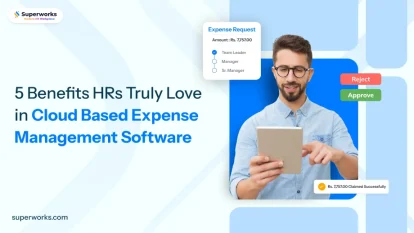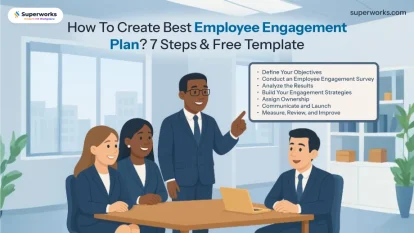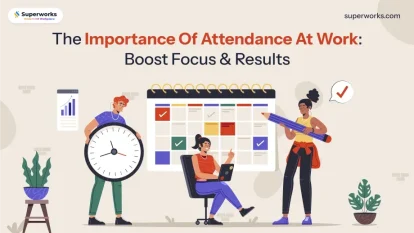
Employee reimbursements are one of the essential processes in running a business. Be it a traveling expense, office supplies, or clients, the employee will use their money for the benefit of the company. A good and transparent reimbursement process will pay the employees right while keeping your business compliant with financial laws. Poorly managed, it will increase the level of frustration among employees, has inefficient handling of the reporting of finances, and may even incite legal troubles.
This article guides you in employee reimbursements, why you need robust reimbursement policies, and best practices in the management of reimbursements while being compliant.
What are Employee Reimbursements?
Employee reimbursements are the money paid out-of-pocket by employees to meet approved work-related expenditures. Such expenditures must be incurred to perform the job and must be reimbursed by the company. Reimbursement categories can differ but the most common are:
- Travel expenses like airfares, hotel, and meals consumed during traveling for official work.
- Office supplies are needed for the job, especially for remote workers.
- Client’s meal and entertainment that are incurred while on a meeting or during negotiation.
- Payment of mileage to employees while they use their vehicle for official work.
Clear policies and processes are key to managing employee expense efficiently. Companies have to decide what comes under the head of expense reimbursement and the procedure followed by employees while they file their claims. Then, there would be no confusion about reimbursement, and the employee reimbursements would not find it confusing either because of the procedure of reimbursement.
Why Employee Reimbursements Matter
A sound employee reimbursement policy for employees is much more than just the reimbursement of the money to the employees. It affects several key areas of the business:
- Employee satisfaction: Employees shouldn’t have to bear the financial burden of business expenses for too long. The on-time reimbursement reflects that it also cares about the work of its employees.
- Follows all Laws: Correctly following the guidelines of the IRS and the rules of FLSA is important since it saves the company from tax penalties and other legal issues.
- Better budgeting: When managed properly reimbursement expenses if well handled, will make a company understand its expenditure in detail and plan their finances better.
Employees will lose trust in the company and business compliance will be a problem without a proper reimbursement process. In fine, the reimbursable policy aims to make it easy for employees and managers so that everyone will know what to expense and how to expense it.
Reimbursable Expenses
Different companies have different policies but some expenses are common across industries. Here are the most common employee expenses:
1. Travel Expenses
Employees generally incur numerous expenditures while traveling on business. Some of the most common reimbursable travel expenditures are as follows:
- Airfare or train tickets for business travel.
- Accommodation costs for hotels during work-related travel.
- Meals and incidentals while traveling for work.
- Taxis, car rentals, or public transportation for business travel.
Companies can cut through the confusion by defining what falls within the definition of travel and by establishing limits or per diem rates on employee expenses. For example, some organizations limit meal expenditures per day, and others will only pay for economy airfare.
2. Office Supplies and Equipment
Most employees have to buy their office supplies in a hybrid and remote work environment. It can start from just stationery and go as far as purchasing monitors or even home office desks. Companies embracing hybrid models of work, therefore, must have specific guidelines about the reimbursement of remote work-related expenditures.
Imagine reimbursements processed in minutes, not days.
Start your journey to a hassle-free solution today!
3. Mileage and Vehicle Expenses
Business-related use of employees’ vehicles is often reimbursable for mileage. The company typically bases an annual standard mileage rate on the IRS. Employees should be reimbursed for all miles driven to work on business-related activities, not driving back and forth from work.
4. Client Meals and Entertainment
Client entertaining or business partners is an expense reimbursement in many industries. Whether it’s a business dinner or tickets to a sporting event companies often reimburse these expenses. But guidelines should clearly define what is client entertaining and set spending limits to avoid excessive or lavish spending.
5. Health and Education Reimbursements
Some companies offer reimbursement for employees seeking professional development opportunities or training. Any healthcare expense is potentially reimbursable according to the corporation’s policies. Good rules should be in place on what is considered reimbursable under these circumstances.
Best Practices for Reimbursement Management
A good process of reimbursement avoids delays and compliance with tax and labor laws. Here are the best practices companies can follow to improve their reimbursement:
1. Clear and Detailed Reimbursement Policy
Companies need to establish a policy stating what is reimbursable and how the process is executed. This ensures no ambiguity and that the same practice is followed across the organization. Good elements of a policy include:
- List of reimbursable expenses.
- The time frame for submitting reimbursement claims.
- Required documentation like receipts and invoices.
2. Automate the Process
Managing reimbursements for employees manually takes a lot of time and can be error-prone. The process gets simplified and gives a way for submitting expenses digitally and managerial approval in a much faster way through an Expense Management System. It reduces the paperwork, makes the processing fast, and reduces errors.
Automated systems can also be linked with other business software; for example, HRMS Payroll Software in India, that further simplifies operations. Tools like Expense Tracking App or Expense Approval Systems help companies manage their reimbursement process better.
3. Track Reimbursements for Financial Planning
Tracking expenses is key to managing the company’s budget. A well-organized expense management system enables companies to review reimbursement data and identify trends. For example, frequent travel expenses may mean the need for better travel policies. With better visibility into expenses, companies can adjust their budgets and make informed financial decisions.
4. Consistency in Approvals
Consistency is essential where approvals of reimbursements are concerned. When employee reimbursements witness some expenses approved and others disallowed without concrete reasons, it results in resentment with probable claims for unfair treatment. Consistent approvals that operate according to policy build a fair and transparent process everyone can depend on.
Legal and Compliance
Reimbursement of expenses doesn’t make the employees happy alone; it is also a requirement by law. IRS and FLSA have specific rules for employee reimbursement and non-compliance may lead to heavy penalties.
IRS Rules
According to the regulations of the IRS, two types of plans exist, namely accountable and non-accountable plans. There exists an accountable plan in which reimbursement enjoys tax benefits both to the employers and the employees. For a plan to be accountable, it must meet three requirements:
- Expenses must be business-related.
- Employees must provide substantiation like receipts within a reasonable time frame.
- Any excess reimbursement expense approval system must be returned to the employer.
Reimbursement through an accountable plan is not considered as income. However, failure to meet these requirements can make reimbursements as regular income.
FLSA Rules
Another area where the FLSA applies to employee reimbursements is employee work-related expense reimbursements. In this regard, an exempt employee may be exempted from compensation relating to working expenses provided it will not lower the employee’s pay below the minimum wage level. This holds significant importance for companies that have hourly employee reimbursements and being updated about these regulations helps avoid legal suits.
Overcoming Common Reimbursement Challenges
Even with policies and automation in place, there can still be challenges in managing employee reimbursements. Some of the most common issues and their concerns include:
1. Reimbursement Delays
The employee gets frustrated when the reimbursement is delayed. Delays can put financial strain especially if employees are covering big expenses like travel or hotel costs. Automation is what must be used to quicken this process. An Expense Management System can simplify approvals and get employees paid back faster.
2. Disputable Reimbursement Expenses
Dispute happens when the company considers those expenses not reimbursable that the employees consider them reimbursable. Probably the best way is to have a clear or comprehensive policy of what will get reimbursed and what won’t. This removes ambiguity and minimizes disputes.
3. Reimbursement for Home Office and Hybrid Workers
As more and more employees work from home, companies are now facing a new imperative to reimburse costs such as internet bills or new office furniture. Perhaps adding a new section on remote work expenses in the reimbursement policy could clarify what employees can look forward to.
Conclusion
A clear, efficient employee reimbursement policy is essential for any company. In HRMS Payroll Software in India makes sure that the employee is paid fairly for all the expenses in relation to the work. However, it keeps the company away from all those tax and labor rules. A reimbursement process with an Expense Management System can make a very agonizing process easier for companies by being fair and friendly. On the other hand, tracking and analyzing reimbursement data leads to better budgeting and financial management of the company.
However, if you want to take it a notch higher, you can even use the Expense Tracking App or Expense Approval System which automates most of the work involved. And if you are in India you can also explore integrated HR software India to simplify things further.







